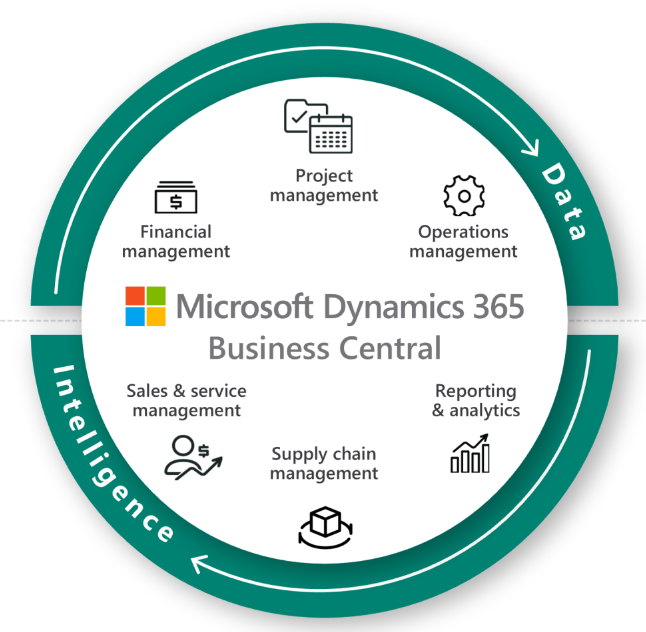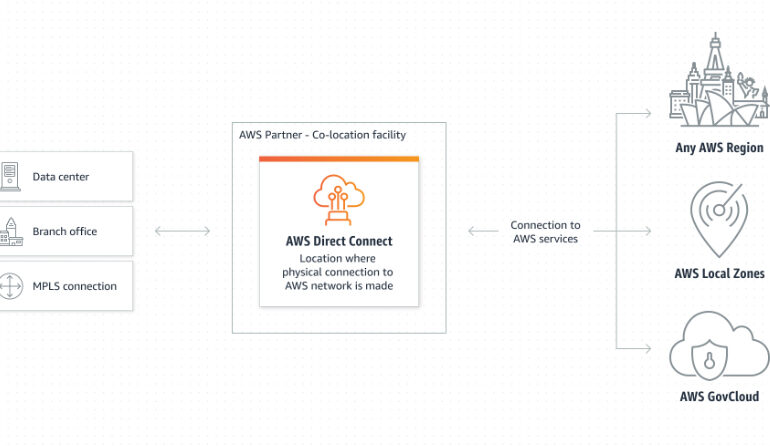How implementing Microsoft Dynamics 365 with a Managed Service Provider can improve your business

Are you looking for a way to enhance your business operations and drive growth? Look no further. In this article, we will explore how the implementation of Microsoft Dynamics 365 with a Managed Service Provider (MSP) can revolutionize your business.
Microsoft Dynamics 365 is a comprehensive suite of interconnected applications that covers all aspects of your business, including sales, customer service, finance, and operations. By leveraging its robust features, you can automate processes, streamline operations, and gain real-time insights into your business performance.
Partnering with a Managed Service Provider adds an extra layer of expertise and support to your Dynamics 365 implementation. They have the knowledge and experience to tailor the solution to meet your specific business needs, ensuring a smooth transition and optimal utilization of the platform.
With Dynamics 365 and an MSP on your side, you can improve efficiency, increase productivity, and gain a competitive edge. Join us as we dive deeper into the benefits of this powerful combination and explore real-world success stories of businesses like yours.
Don’t miss out on the opportunity to transform your business. Let’s get started!
In this article we discuss the following key areas:
- Understanding the benefits of implementing Microsoft Dynamics 365
- How a Managed Service Provider can support your business
- Evaluating your business needs and choosing the right MSP
- The process of implementing Microsoft Dynamics 365 with an MSP
- Key considerations for a successful implementation
- Maximizing the potential of Microsoft Dynamics 365 with ongoing MSP support
- Case studies: Successful business transformations with Microsoft Dynamics 365 and MSPs
- Cost considerations and ROI analysis
Understanding the benefits of implementing Microsoft Dynamics 365
Implementing Microsoft Dynamics 365 offers a wide range of benefits for your business. Firstly, it provides a unified platform that integrates all your business operations, allowing you to streamline processes and eliminate silos. This integration enables seamless data flow across departments, resulting in improved communication and collaboration among teams.
Secondly, Dynamics 365 offers powerful analytics and reporting capabilities. By leveraging these features, you can gain real-time insights into your business performance, identify trends, and make data-driven decisions. This level of visibility is crucial for staying ahead of the competition and maximizing profitability.
Lastly, Dynamics 365 is highly scalable, allowing you to adapt and grow as your business evolves. Whether you have a small startup or a large enterprise, the platform can accommodate your needs and support your expansion plans. This scalability ensures that your investment in Dynamics 365 will continue to deliver value in the long run.
Implementing Microsoft Dynamics 365 is a strategic decision that can transform your business operations and drive growth. With the right support from a Managed Service Provider, you can unleash the full potential of the platform and achieve your business goals.
How a Managed Service Provider can support your business
Partnering with a Managed Service Provider (MSP) can significantly enhance your Dynamics 365 implementation. An MSP brings a wealth of knowledge and experience to the table, ensuring that the platform is customized to meet your specific business needs.
MSPs have a deep understanding of Dynamics 365 and its capabilities. They can help you identify the right modules and applications to leverage, ensuring that you get the most out of the platform. By tailoring Dynamics 365 to your business processes and requirements, an MSP can help you achieve optimal efficiency and productivity.
Furthermore, MSPs provide ongoing support and maintenance for your Dynamics 365 environment. They take care of updates, security patches, and system maintenance, allowing you to focus on your core business activities. This level of support ensures that your Dynamics 365 implementation remains secure, stable, and up-to-date at all times.
In addition to technical expertise, MSPs also provide user training and support. They ensure that your employees are fully equipped to use Dynamics 365 effectively, maximizing adoption and minimizing disruption during the transition phase. With an MSP by your side, you can ensure a smooth implementation and empower your employees to make the most of the platform.
Partnering with an MSP is a strategic investment that can accelerate the success of your Dynamics 365 implementation. Their expertise, support, and ongoing maintenance will ensure that you achieve a high return on your investment and drive business growth.
Evaluating your business needs and choosing the right MSP
Before embarking on your Dynamics 365 journey, it is crucial to evaluate your business needs and select the right Managed Service Provider. Here are some key considerations to keep in mind:
- Experience and expertise: Look for an MSP with a proven track record in implementing Dynamics 365. They should have experience working with businesses similar to yours and possess deep knowledge of your industry. This expertise will ensure that they understand your unique challenges and can tailor the platform accordingly.
- Services offered: Evaluate the range of services offered by the MSP. Do they provide end-to-end implementation, ongoing support, and training? Are they equipped to handle customization and integration with other systems? Choosing an MSP that offers a comprehensive suite of services will ensure a seamless experience and minimize the need for multiple vendors.
- Reputation and references: Research the reputation of the MSP in the market. Read reviews, testimonials, and case studies to gauge their customer satisfaction levels. Additionally, ask for references from their existing clients and speak to them directly to gain insights into their experience with the MSP.
- Cost considerations: While cost should not be the sole determining factor, it is an important consideration. Evaluate the pricing structure of the MSP and ensure that it aligns with your budget. Consider both upfront costs and ongoing maintenance fees to get a complete picture of the financial commitment.
By carefully evaluating these factors, you can choose an MSP that is the right fit for your business. Remember, this partnership is a long-term commitment, so it is important to select an MSP that you can trust and rely on.
The process of implementing Microsoft Dynamics 365 with an MSP
The implementation process of Microsoft Dynamics 365 with a Managed Service Provider typically follows a structured approach. While the exact steps may vary depending on your business requirements, here is a general outline of the implementation process:
- Discovery and planning: The first step involves understanding your business processes, requirements, and goals. The MSP will work closely with your team to gather information and conduct workshops to identify the modules and applications that need to be implemented. This phase sets the foundation for a successful implementation.
- Configuration and customization: Once the requirements are defined, the MSP will configure and customize the Dynamics 365 platform accordingly. This involves setting up entities, fields, workflows, and dashboards to align with your business processes. Customization ensures that the platform meets your specific needs and provides a tailored experience.
- Data migration: In this phase, the MSP will help you migrate your existing data into Dynamics 365. This includes cleaning and transforming the data, ensuring its integrity and accuracy. Data migration is a critical step to ensure a smooth transition and minimize disruption to your business operations.
- Testing and training: Before going live, thorough testing is conducted to validate the configuration and ensure that the platform is working as expected. The MSP will also provide training to your employees, enabling them to use Dynamics 365 effectively. Training sessions may include workshops, user manuals, and on-demand support to empower your team.
- Go-live and post-implementation support: Once testing and training are complete, it’s time to go live with Dynamics 365. The MSP will assist you during the go-live phase, ensuring a smooth transition and minimal downtime. Post-implementation, the MSP will provide ongoing support, addressing any issues or questions that may arise.
By following this structured approach, you can ensure a successful implementation of Microsoft Dynamics 365 with the support of an MSP. This process minimizes risks, maximizes efficiency, and sets the stage for long-term success.
Key considerations for a successful implementation
Implementing Microsoft Dynamics 365 with an MSP requires careful planning and execution. Here are some key considerations to ensure a successful implementation:
- Clearly define your goals and objectives: Before starting the implementation, clearly define what you want to achieve with Dynamics 365. Set specific, measurable, achievable, relevant, and time-bound (SMART) goals to align the implementation with your business objectives.
- Involve key stakeholders: Engage key stakeholders from different departments in the planning and implementation process. Their input and feedback are crucial for ensuring that Dynamics 365 meets their specific needs and addresses the challenges they face in their roles.
- Communicate and manage change effectively: Implementing a new system often involves change, which can be met with resistance. To overcome this, communicate the benefits of Dynamics 365 to your employees and involve them in the process. Address any concerns or misconceptions they may have and provide ongoing support and training to facilitate a smooth transition.
- Test and validate: Thoroughly test the Dynamics 365 configuration before going live. Identify and fix any issues or gaps to ensure that the platform functions as expected. Additionally, validate the data migration process to ensure the accuracy and integrity of your data.
- Monitor and measure: Once Dynamics 365 is implemented, continuously monitor and measure its performance against your defined goals. Leverage the reporting and analytics capabilities of the platform to gain insights into your business performance and make data-driven decisions.
By considering these key factors, you can ensure a smooth and successful implementation of Microsoft Dynamics 365 with an MSP. This diligent approach will maximize the benefits of the platform and drive business growth.
Maximizing the potential of Microsoft Dynamics 365 with ongoing MSP support
The implementation of Microsoft Dynamics 365 is just the beginning of your journey towards business transformation. To fully leverage the potential of the platform and ensure ongoing success, it is crucial to have the support of a Managed Service Provider (MSP).
MSPs provide ongoing support and maintenance for your Dynamics 365 environment. They take care of updates, security patches, and system maintenance, ensuring that your platform remains secure, stable, and up-to-date. This level of support frees up your internal IT resources, allowing them to focus on strategic initiatives instead of routine maintenance tasks.
In addition to technical support, MSPs also offer user training and support. They ensure that your employees are equipped with the necessary skills to use Dynamics 365 effectively. This training can be customized to your specific business processes and requirements, empowering your team to make the most of the platform.
MSPs also assist with continuous improvement and optimization of your Dynamics 365 implementation. They analyze your business processes, identify areas for improvement, and suggest enhancements to maximize efficiency and productivity. This ongoing partnership ensures that your Dynamics 365 environment evolves with your business needs and continues to deliver value in the long run.
By leveraging ongoing MSP support, you can fully maximize the potential of Microsoft Dynamics 365. Their expertise, support, and maintenance will ensure that your platform remains optimized, secure, and aligned with your business goals.
Case studies: Successful business transformations with Microsoft Dynamics 365 and MSPs
Real-world success stories speak volumes about the impact of Microsoft Dynamics 365 and Managed Service Providers on business growth. Here are a few examples of businesses that have experienced significant improvements through their Dynamics 365 implementations:
- Company A: Company A, a manufacturing firm, partnered with an MSP to implement Dynamics 365. By streamlining their supply chain management, they were able to reduce lead times, improve inventory management, and enhance customer satisfaction. The real-time visibility into their operations allowed them to make data-driven decisions and optimize their production processes, resulting in increased efficiency and profitability.
- Company B: Company B, a professional services firm, implemented Dynamics 365 with the support of an MSP. They automated their project management processes, enabling real-time tracking of project progress, resource allocation, and financials. This automation eliminated manual errors and improved project profitability. The integration of Dynamics 365 with their CRM system also enhanced their customer relationship management, resulting in improved client satisfaction and retention.
- Company C: Company C, a retail business, partnered with an MSP to implement Dynamics 365 for their sales and marketing operations. By leveraging the platform’s capabilities, they gained a holistic view of their customers, enabling targeted marketing campaigns and personalized customer experiences. This resulted in increased lead generation, higher conversion rates, and improved customer loyalty.
These case studies highlight the transformative power of Microsoft Dynamics 365 and the value of partnering with an MSP. By implementing Dynamics 365 with the right support, businesses across industries can achieve significant improvements in efficiency, productivity, and profitability.
Cost considerations and ROI analysis
When considering the implementation of Microsoft Dynamics 365 with an MSP, it is important to evaluate the costs involved and conduct a return on investment (ROI) analysis. While the upfront investment may seem significant, the long-term benefits and ROI can outweigh the costs.
The cost of implementing Dynamics 365 with an MSP includes licensing fees, implementation services, ongoing support, and training. It is essential to evaluate these costs in relation to the expected benefits and improvements to your business operations.
To conduct an ROI analysis, consider the following factors:
- Cost savings: Identify the areas where Dynamics 365 can bring cost savings to your business. This could include reducing manual processes, eliminating duplicate data entry, and optimizing resource allocation. Calculate the potential cost savings over a specific period to gauge the ROI.
- Improved productivity: Dynamics 365 can significantly improve productivity by automating manual tasks and providing real-time insights. Quantify the time saved by employees and calculate the impact on their productivity. This improvement in productivity can translate into higher revenue and profitability.
- Enhanced customer satisfaction: By leveraging Dynamics 365, you can provide a seamless and personalized customer experience. This can lead to increased customer satisfaction, repeat business, and positive word-of-mouth referrals. Calculate the potential revenue increase resulting from improved customer satisfaction.
- Business growth: Dynamics 365 offers scalability, allowing your business to grow and expand. Consider the potential revenue growth that can be achieved by leveraging Dynamics 365 to enter new markets, launch new products, or expand your customer base.
By evaluating these factors and conducting a thorough ROI analysis, you can make an informed decision about the implementation of Microsoft Dynamics 365 with an MSP. While the costs may initially seem significant, the long-term benefits and ROI can far outweigh the investment.
Conclusion: Leveraging the power of Microsoft Dynamics 365 and MSPs for business growth and success
In conclusion, the implementation of Microsoft Dynamics 365 with a Managed Service Provider (MSP) can revolutionize your business operations and drive growth. With its comprehensive suite of applications and robust features, Dynamics 365 provides a unified platform that streamlines processes and enables real-time insights.
Partnering with an MSP adds an extra layer of expertise and support, ensuring that your Dynamics 365 implementation is tailored to your specific business needs. They provide ongoing support, maintenance, and user training, allowing you to fully leverage the potential of the platform.
Through real-world success stories and case studies, it is evident that businesses across industries have experienced significant improvements through their Dynamics 365 implementations. By automating processes, improving productivity, and enhancing customer experiences, these businesses have gained a competitive edge and achieved business growth.









































